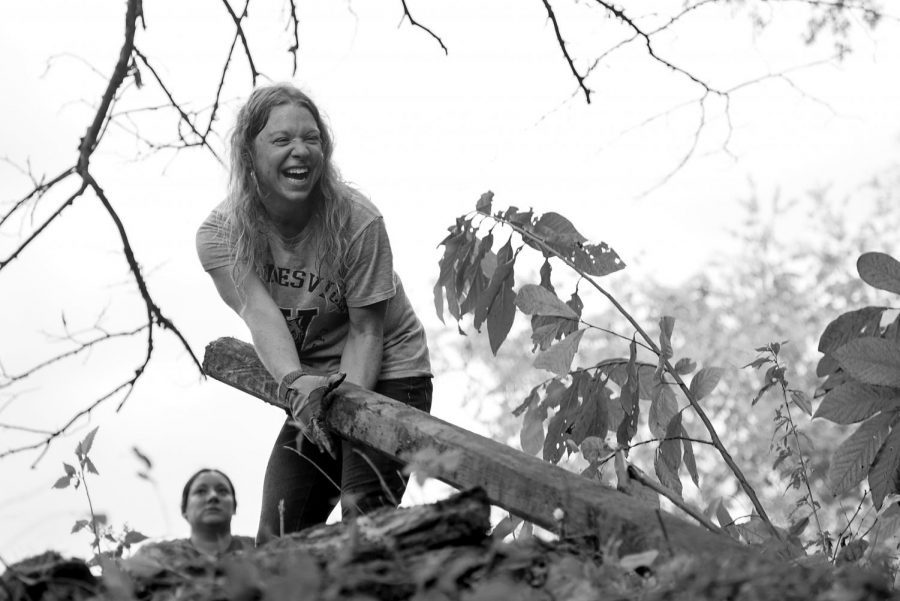Green River Grotto keeps underground clean
September 21, 2016
Green River Grotto, Bowling Green’s local caving club, hosted the annual Kentucky Speleological Survey meeting last weekend alongside a sinkhole cleanup and cave explorations.
The Kentucky Speleological Survey is responsible for storing and distributing all cave data collected in the state, according to KSS vice president and Green River Grotto member Josh Brewer.
Local grottos across Kentucky collect data by surveying the caves and providing mapping information to the KSS, Brewer explained. The map is then given to the landowner, or may be used by the Kentucky Department of Transportation for road planning.
Green River Grotto, headquartered at WKU, is made up of about 15 to 20 volunteers, Brewer said. In addition to cave surveying, the grotto responds to landowners with sinkholes on its property.
“A lot of people throw trash in sinkholes, and it’s a problem,” Brewer said. “Anything you throw in the ground is going to get in your water.”
Keeping both caves and sinkholes clean is essential to keeping water clear from contamination, Brewer explained.
Brewer said anyone is welcome to join the grotto no matter his or her level of caving experience. Occasionally, the group takes recreational trips to caves, allowing members to get a better understanding of how to handle and navigate caves before beginning work with mapping and surveying.
“If they don’t know, we will teach,” Brewer said.
Brewer joined Green River Grotto in 2005 as a geology student at WKU and has been an active member of the group ever since. Currently, several members are WKU graduate students studying geology, he said.
Grotto member Sarah Arpin said she began caving 10 years ago when she took a weeklong trip with the American Hiking Society.
“I just happened to be sent to Mammoth Cave,” Arpin said. “We did a bunch of trail restoration, and we went into a couple of caves at night. I just got hooked. I ended up staying for the rest of the summer.”
Arpin said her interest in caving initially came from not knowing what was ahead. After graduating with a master’s degree in geology, she began to focus on the importance of conservation and collecting data.
Survey data can be used for a variety of purposes, she explained, such as planning for land use above the cave, or determining whether the groundwater is getting contaminated.
Last Friday evening, the grotto kicked off the KSS weekend with a sinkhole cleanup at a property owned by Travis Cummings, who contacted Brewer to get help clearing out a sinkhole on his land. Cummings said the hole had been there since before he purchased it two years ago, and was filled with old lumber until the grotto cleared it out.
Sinkholes form when groundwater eats away and pulls material down, Brewer explained. Once the material breaks down, a hole is created.
Although the KSS schedule originally planned on having participants survey Lost River Cave, cavers were sent instead to explore Hoy Cave in Simpson County because of rain. Green River Grotto hosted the annual meeting on WKU’s campus Sunday; one focus was to rewrite the KSS bylaws to make data distribution more caver friendly, according to Brewer.
“It’s a different world underground, for sure,” Brewer said. “You can see things that very few people really understand.”
Reporter Emma Austin can be reached at 270-745-2655 and [email protected]. Follow her on Twitter at @emmacaustin.
























